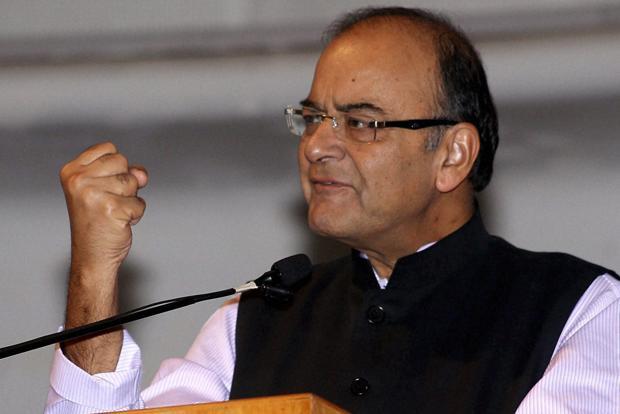Budget is likely to make a sweeping recast of direct taxes to give a boost to the economy
 NEW DELHI : Finance Minister Arun Jaitley is widely expected to announce in his Union Budget 2017, income tax sops to spur consumption in the economy, which has been hit by demonetisation.
NEW DELHI : Finance Minister Arun Jaitley is widely expected to announce in his Union Budget 2017, income tax sops to spur consumption in the economy, which has been hit by demonetisation.
The Finance Minister will present the Budget on Wednesday, February 1, and markets and industry also expect him to make announcements to stimulate growth. “The government’s fourth budget is likely to make a sweeping recast of direct taxes to give a boost to the economy following demonetisation,” said Soumya Kanti Ghosh, group chief economic adviser of State Bank of India, in a report.
The income tax exemption limit for persons below 60 could be hiked from the Rs. 2.5 lakh currently, say economists. But the estimates vary widely – some economists say that the limit could be raised to Rs. 3 lakh. On the other hand the government should double the basic exemption limit to Rs. 5 lakh per year, says an EY survey said. Mr Jaitley in the 2014 Budget had cheered the salaried class by raising tax exemption limit to Rs. 2.5 lakh from Rs. 2 lakh.
But SBI does not expect a change in tax rates. If the exemption limit is hiked to Rs. 3 lakh, the 10 per cent rate would be applicable for income between Rs. 3 lakh and Rs. 5 lakh, with the rest remaining the same, SBI says in the report.
In last year’s Budget, Mr Jaitley had allowed an additional deduction of Rs. 50,000 under Section 80CCD (1) for investment in National Pension Scheme or NPS, which resulted in total deductions of Rs. 2 lakh under Section 80C and Section 80CCD. With the overall savings rate declining, there is a need to increase this deduction by Rs. 50,000 to Rs. 2.5 lakh, say economists.
SBI expects the government to increase the exemption limit of interest payments under housing loan to Rs. 2.5 lakhs for existing home loan buyers also from the current level of Rs. 2 lakhs. There are around 75 lakh home loan buyers in the country, so the increase in home loan interest deduction from Rs. 2 lakh to Rs. 2.5 lakh will benefit them.
Economists are also watching whether Mr Jaitley will hike the service tax (currently at 15%) to align with the goods and services tax (GST) regime. “It will be interesting to see whether the finance minister chooses to hike service tax by 1 percentage point in order to align it with the GST,” says SMC Securities in a report.
Rajesh Baheti, MD of Crosseas Capital Services, says Mr Jaitley is unlikely to tinker much with the indirect taxes (excise duties) in the Budget as government has set July 1 date for rolling out the GST regime.
Brokerage Edelweiss expects that tax-savings infrastructure bonds could make a comeback. These bonds had earlier allowed investors get additional tax deductions. The fund raised would be used for financing highway and railway projects.
To incentivise savings, the government should raise the exemption limit on tax deducted at source or TDS on interest on bank fixed deposits to Rs. 20,000 from the present limit of Rs. 10,000, said SBI in a report.
The bank also in the same report said that the lock-in period for tax savings bank fixed deposits be reduced to three years from the present five years. Incentivising digital payments could be a key focus area in the Budget, says Edelweiss. Sops for incentivising digital payments could see a meaningful increase in the Budget, it says.
Market observers would be closely watching if the government makes any changes to the tax regime on investments in equities. Under the current regime, gains from transactions in shares held for less than 12 months are considered short-term capital gains and are subject to 15 per cent tax.
Gains on holdings above 12 months qualify for long term capital gains benefits and are exempted from tax. Any move to end tax breaks on equity gains may turn sentiments sour towards the capital market, say analysts. Jyotivardhan Jaipuria, CEO of Veda Investment Managers, said possibly the 1-year limit for long term could be changed to two years but the tax rate is likely to be kept at zero.

